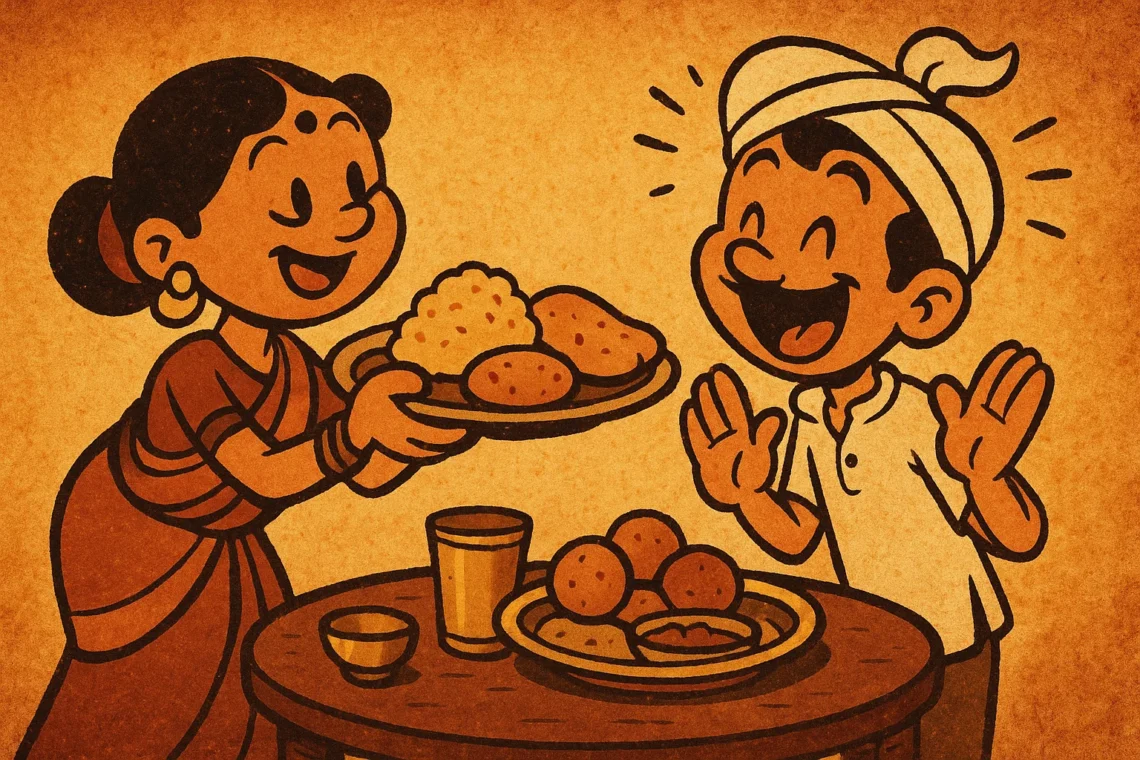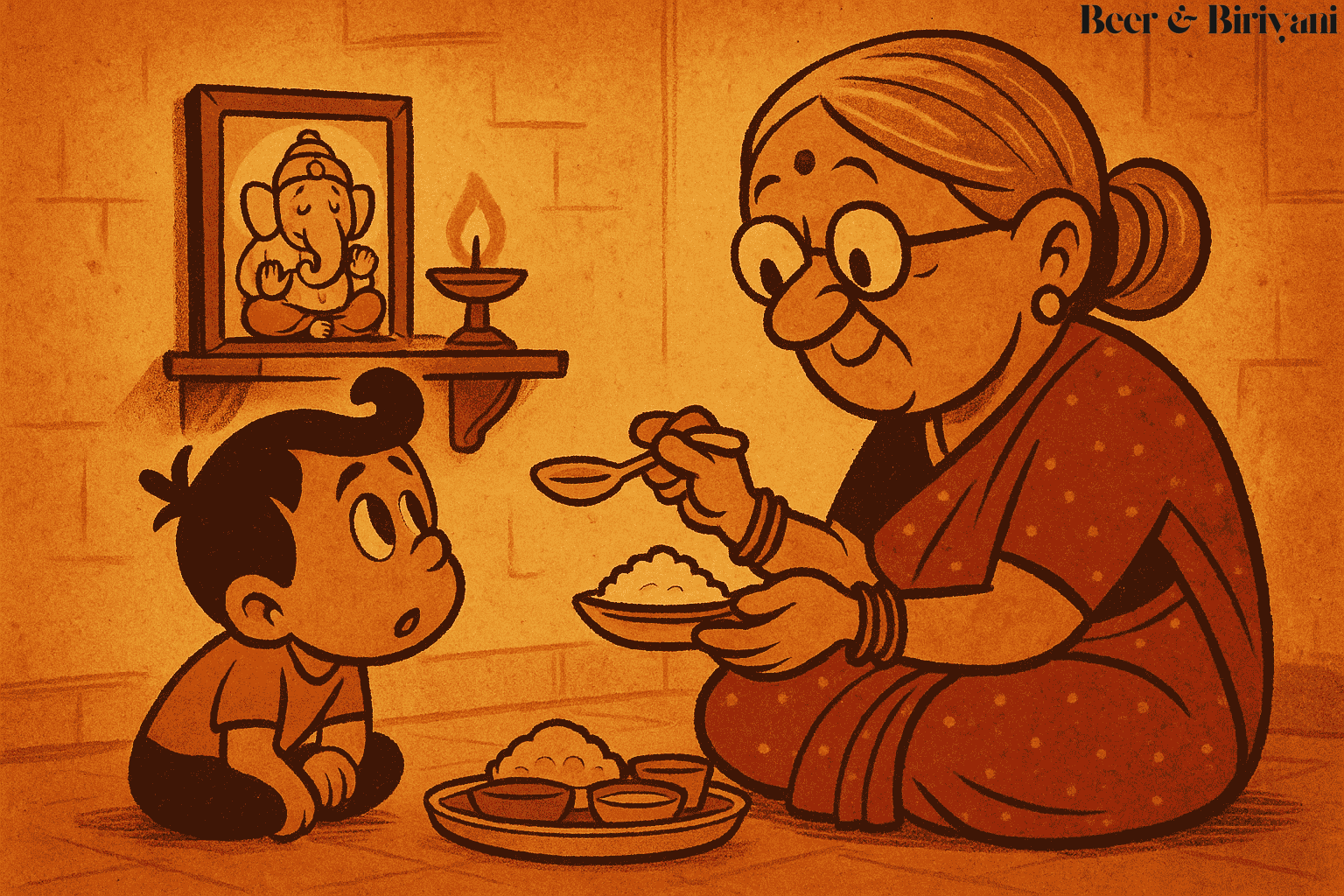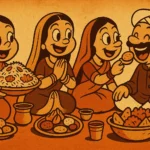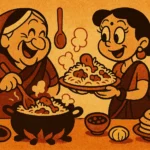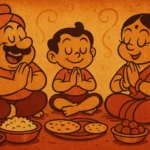Before the first bite, before the fingers touch the rice, before even the smell is fully inhaled—there is a pause. A moment of stillness. And in many Indian homes, this moment carries quiet, sacred weight. Because in our kitchens, food is not just consumed. It is first offered. To God, to ancestors, to life itself. Sometimes through ritual. Sometimes through memory. Always through intent.
Growing up, I noticed how my mother never took the first bite right away. She’d close her eyes for just a second. Whisper something I couldn’t hear. And then, only then, begin to eat. It wasn’t dramatic. There was no incense or chant. Just a small offering made in silence. A spoonful of rice and dal, placed on the side of the plate. A mental note to the divine: “Thank you. Here’s your share.”
Naivedyam and the Act of Grace
In more traditional homes, this offering is more formal. A small portion of the meal is set aside—on a clean banana leaf, a silver plate, or a terracotta bowl. It’s placed in front of an idol or a photograph. Sometimes it’s just a ladle of dal. Sometimes it’s the best piece of the sweet. The offering is not about abundance. It’s about acknowledgment. That this meal, like every other, is possible because of something bigger than us.
They call it naivedyam. The act of offering before partaking. The food is first given to the gods, then it becomes prasadam—blessed, elevated, no longer just food but something sacred. And even in households where idols don’t sit on shelves, the idea survives. In small habits. In gestures. In the way we serve elders first. In how we never eat until everyone has food on their plate.
More Than Ritual—A Gesture of Gratitude
It’s easy to see this as religious. But it’s more than that. It’s emotional. It’s about gratitude. In a country where food was never guaranteed for everyone, pausing before the first bite was not just polite—it was reverent. A way to say, “I see this food. I don’t take it for granted.” And even now, in modern kitchens filled with air fryers and dinner delivered in boxes, that moment—however brief—still exists. A nod. A breath. A blessing.
I’ve seen it in homes of all faiths. A Muslim grandmother who recites a quick bismillah before breaking bread. A Sikh uncle who murmurs “Waheguru” over his thali. A Jain mother who closes her eyes before lifting her spoon. A Christian friend who bows his head for a second. None of it flashy. All of it sincere.
The Offering as Memory
Sometimes, the food isn’t offered to God at all—but to someone no longer at the table. My aunt, even years after her father passed, still puts a small piece of sweet aside for him during Diwali meals. “He loved this,” she says, with a smile that’s both joy and ache. That’s an offering too. Not to a deity, but to a memory. A presence that lingers. A way of saying, “You’re still here.”
And sometimes, the offering is internal. You don’t place anything physically. You just pause. Think of the farmer. The cook. The hands that cleaned the rice. The eyes that noticed the vegetable was just ripe. The person who served you with a smile, even if they were tired. That’s offering too. A quiet kind of prayer that doesn’t ask for anything—it just thanks.
Modern Meals, Same Moments
Now, when I eat alone in my kitchen in Austin, surrounded by the whirr of appliances and the glow of screens, I still pause before the first bite. Not always. But often enough. I look at the food. Smell it. Take a breath. And say, in my own clumsy way, “This matters.” I don’t light a lamp. I don’t recite a shloka. But I feel the weight of the meal. And in that moment, the kitchen feels less like a room and more like a continuation of something ancient. Something gentle.
Because food offered before the first bite isn’t about what’s on the plate. It’s about what’s in the heart. A small act of reverence. A big gesture of belonging.
Born in Mumbai, now stir-frying feelings in Texas. Writes about food, memory, and the messy magic in between — mostly to stay hungry, sometimes just to stay sane.

